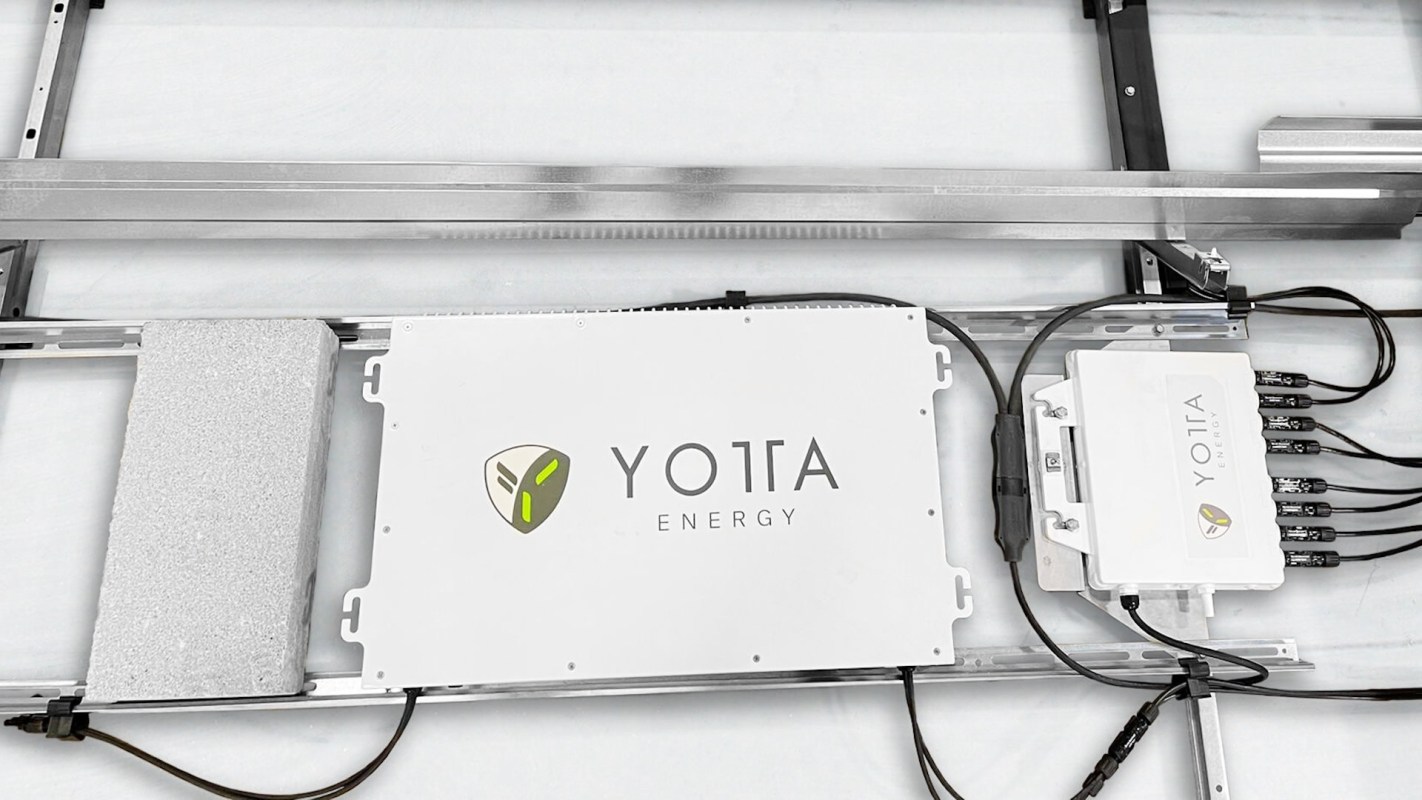Anyone considering a rooftop solar system will have a lot to like about Texas-based Yotta Energy's innovation.
Interestingly, it's what the setup doesn't include that could be most game-changing for the small- and medium-sized businesses targeted by the company, per a CleanTechnica report.
There's no extra land area needed for energy storage — and no trenching, no structure, and no foundation, either. Owners won't need landscaping, fencing, or aesthetics. And there's no cause for extra building and electrical permits for a big battery.
It's accomplished by a unique concept where a series of small batteries are installed underneath rooftop panels. This is in contrast to traditional systems, where a larger battery is installed elsewhere in the home or business to store solar energy. Yotta's tech is currently only applicable for commercial use for now, at 208 volts and 480 volts, though the concepts could be adapted for residential rooftop use in the future.
"The company works directly with customers in what they view as an underserved market to deliver a one-stop-shop for solar and energy storage," CleanTechnica's Kyle Field wrote in a story about the invention.
When solar panels catch sunlight, they create DC energy. An inverter is used to transition the power to AC, before being stored in a battery for later use. Tesla's Powerwalls, for example, are a popular setup for homes and businesses, with more than 500,000 installed. They typically cost about $10,000 or more.
Yotta's design eliminates the need to wire in another system for the battery. The small power packs placed under the panels weigh a manageable 53 pounds each, including micro inverters to convert the energy from DC to AC.
Installers typically need to add weight in other designs to help secure the rigging to the structure. But with Yotta, the batteries act as ballasts for the system, per the CleanTechnica report.
The decentralized storage adds up to lower installation, lifetime maintenance, and operational costs as part of a highly efficient system, Yotta claims on its website.
The batteries use lithium-iron phosphate (LFP) chemistry, a type of battery made by larger manufacturers, including CATL, and others. It's cheaper than traditional power packs because LFP uses less expensive materials.
Yotta's battery has successfully operated in the Texas heat. The white batteries reflect the sun and are well-insulated. Furthermore, the designers created the power packs with fins that allow them to self-cool without external coolant.
Later this year, the company plans to install systems in the northern part of the country to test the setup in colder climates, according to CleanTechnica.
"We remain dedicated to pushing the boundaries of sustainable technology, driving impactful change, and shaping a brighter, cleaner future for generations to come," Yotta CEO Omeed Badkoobeh said in a press release.
The innovation could help to expand a growing U.S. renewable energy sector, already producing 20% of the nation's power, with government statistics showing that solar accounts for 3.4% of that mix.
Transitioning to cleaner power sources reduces planet-warming air pollution created when dirty energy is used to make electricity. What's more, switching to renewables has a wide range of health benefits, extending even to the classroom. That's because the Earth's overheating has been found to impact grades, according to experts.
The Yotta team intends to be a part of the solution and is already installing multitudes of megawatts worth of systems.
"Sustainable innovation is key to addressing the world's energy challenges," Badkoobeh said in the statement.
Editor's note: A previous version of this article carried a headline implying this tech could transform home energy storage, even though the article detailed how the company is currently only installing systems for commercial use. The headline has been updated to reflect this.
Join our free newsletter for weekly updates on the coolest innovations improving our lives and saving our planet.









